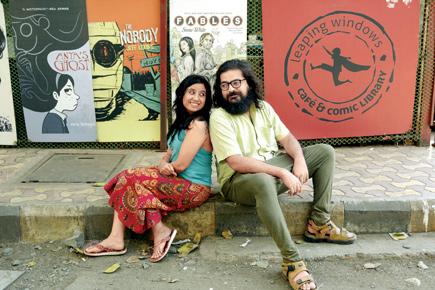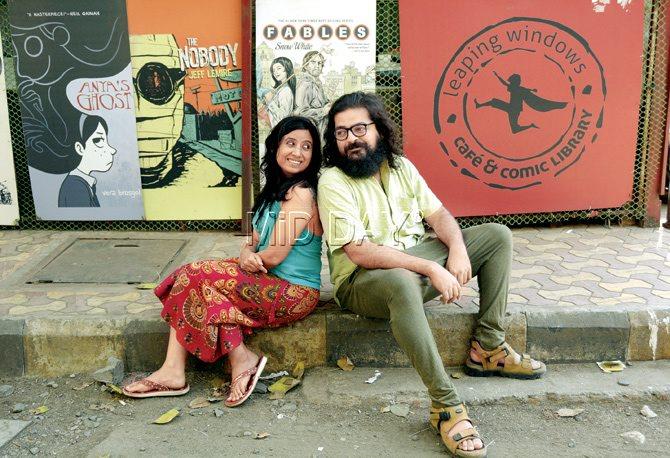Co-founder of the Why Loiter campaign, Neha Singh, and theatre artiste Satchit Puranik hope to empower the audience with a new play that discusses brazen roaming

Neha Singh and Satchit Puraniku00c3u00a2u00c2u0080u00c2u0099s play, Loitering, follows the experiences of six women and four men, who recount what happened when one day, they decided to loiter
Imagine the scene: two Indian girls in Kuwait, crossing an empty road, waiting for their parents to pick them up. A gang of boys heckle; they ignore. They then notice a pool of water collecting next to them. The boys are urinating pointing towards them. They scream, and a Pakistani hawker across the road runs away. But then he is back, with five more hawkers and they chase the street harassers away.

Neha Singh and Satchit Puranik’s play, Loitering, follows the experiences of six women and four men, who recount what happened when one day, they decided to loiter. Pic/Pradeep Dhivar
This a true story about what happens when people "loiter", and more experiences like these are part of a play called Loitering, produced by NCPA Edge and production house Sur owned by Amrita Dodani. Director and actor Satchit Puranik, 34, decided to make a play based on the Why Loiter campaign run by friend, writer and actor Neha Singh, 32.
In 2014, after Singh read Why Loiter?: Women and Risk on Mumbai Streets by Shilpa Phadke, Sameera Khan and Shilpa Ranade, she decided to take the Why Loiter idea to the streets. The aim was to take women to open, public spaces to roam so as to spread awareness about what is safe and unsafe, and allow women could reclaim their city. When Puranik first asked if he could come along, he was told it was only for women. But when he suggested, he dress up like a girl, Singh agreed. "It was later that we realised that it's not just a gender problem, it's also a minorities problem, like the one facing transgenders. People of different castes and classes also face problems when they loiter," says Singh as we chat at a cafe.
The play includes experiences of six women and four men, who recount what happened when one day they decided to loiter. Puranik, who was also casting director for critically acclaimed film Court, has chosen the "documentary theatre performance" approach so that everyone in the audience can relate and know that their experiences also count. "We have taken people belonging to different ages, life situations, religions — so a 65-year-old woman says that one day, during a random picnic with her neighbours, as she loiters, she notices a sign that needs typists to type out PhD projects. She then calls up her home and says she isn't going to return as she has a new job now. Another story, Neha's, is about what happened when she decides to cycle in Mumbai as she used to when she was a kid growing up in Army cantonments." What happened was that she got bullied and teased by a bunch of goons, who worked for a regional political party. "When I questioned them, they just gathered around me and started fighting," says Singh.
The play is an extension of the campaign that's been finding resonance across the world. Some women from Pakistan who came across the Why Loiter blog, decided to do something similar and started Women in Dhabas, where girls would go, sit chat at dhabas, traditionally male hangouts. "Many people who call and want to be part of the movement also say, 'since it was a midnight loiter, I wore a salwar kurta'. But that's changing. Some come and say, 'I wore red lipstick, because I have never done that'. We once loitered on to the last train of the day at 1.40 am, and all the girls wore shorts. It was about saying, 'we can do this. This is okay'," says Singh.
The play, which is going to be staged at NCPA on March 8, International Women's Day, is trying to further the cause of the campaign by removing negative connotations associated with 'loiter'. "I think that in the times that we live in, where everyone is always trying to make the best of their time so as to say 'we are not wasting time. We are productive', we need to loiter more. It will relax us and make us happier," signs of Puranik.
 Subscribe today by clicking the link and stay updated with the latest news!" Click here!
Subscribe today by clicking the link and stay updated with the latest news!" Click here!










